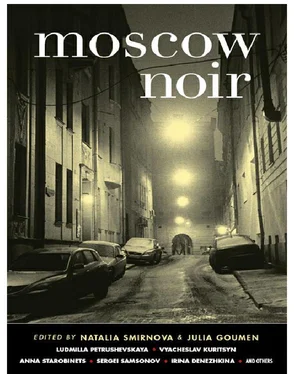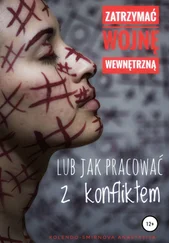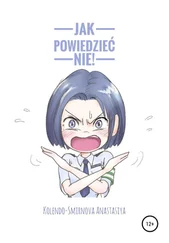“Oh, I don’t know.” Baba Agafia sniffed. “They didn’t just not have three hundred thousand, they didn’t have a kopek. I said I wouldn’t let them in. Over my dead body. Well, I could see they realized they were barking up the wrong tree. They walked away, whispered their secrets, and drove off. And now, just before you, they called again. They said they’d be right over. With the money. What about yours?”
“Who?”
“Oh, little Farid’s mujahideen.”
“That’s why I’m calling. This guy fixed everything, looks like, finished them off. Amazing.”
“How do you know?”
“None of their cells answer.”
“That means you’re free. And you have the money. You got away from me and little Farid.” Baba Agafia cackled, tickled. “Where are you hightailing it to?”
“Thailand, like I told you. Tomorrow there’ll be last-minute tickets on sale at this office I know. We think we can pull it off. Hey, dead man,” Lana said away from the phone, “what do you think, are we going to get those tickets?” Baba Agafia could hear a muffled male voice. “The dead man says we are.”
“All right, then,” Baba Agafia sighed. “You and I have talked too long. They might still call and the phone will be busy. Are you sure you locked that guy in?”
“You want me to go over and check to see if he’s already broken out?”
“Oh, I’m just afraid of him, the murderer. That look of his… makes my skin crawl.”
“Don’t be afraid,” Lana chuckled. “He’s the one whose soul is hanging by a thread. If he has one, of course.”
“Listen”—Baba Agafia’s voice dropped to a whisper—“what if he’s listening on the extension right now? Ugh, I didn’t think of that.”
“Not likely.” Lana chuckled again. “That’s the least of his problems. And even if he is listening… Hello,” she said in lower voice. “Hell on the line. I’ve got your number. God will call when—”
“Curse that tongue of yours, fool!” Baba Agafia shot back. “Fear God, you shameless girl!” There was a staccato chattering, after which short beeps started leaping in the ether.
As if expecting to hear something more, Veltsev held the receiver to his ear for a while longer, and then, sitting up straight, he lowered it carefully on the hook.
Rattling the chair, which he pushed in front of him like a walker, he headed over to the still smoking bed, took his passport out of his pocket, leafed through it, shook it out upside down, and tossed it aside. The rug seemed to be tilting to the left with the whole bed. It’s going to break where it’s weak , he thought, remembering how yesterday at the registration desk he’d slipped his hotel card between the pages of his passport and how today he’d searched for it in his wallet without knowing what he was looking for. A hot sea seemed to be overflowing its shores inside him. Smiling distractedly, like someone dangling his last cigarette in his fingers, he pictured Lana’s tear-stained face as she sat in front of him, and wondered at this image, at how it already existed on its own, as if it were something outside of him, which meant that the laughing voice he’d just heard in the ether no longer belonged to him. The cuckoo clock on the wall shuddered. A moment later, its chilled steel struck half past 12. The bird’s door didn’t open, it just shook; however, behind the toy mechanism Veltsev heard heavenly thunder. Someone was fiddling with the lock in the front door very carefully. Without looking he picked up his gun, cocked the trigger, and chuckled at the little man on the string: no one had called.
FIELD OF A THOUSAND CORPSES
by Alexander Anuchkin
Elk Island
Translated by Marian Schwartz
Bogorodskoe Municipality,
Eastern Administrative District, 1996
When Nikolai Petrovich Voronov is sitting there like that and looking like that, expect trouble. Actually, if he’s looking some other way, you should still expect it. Nikolai Petrovich and trouble are twin brothers. Behind his back they call him Banderas, after the Spanish actor who conquered the world with his incredible muscularity and crazy machismo. When you look at the Hollywood Banderas, you can’t believe he actually exists. No one’s really like that. At least, that’s what they say. Me, I haven’t been to the movies for a long time. It’s expensive and pointless. Especially since a real homegrown Banderas is directly in front of me right now and I’m sitting here looking at him.
I realize that meeting a man like this on one’s life journey is tremendous good fortune. Don’t think I’ve got some alternative orientation or I don’t like women. God forbid. It’s just that Nikolai Petrovich is truly magnificent.
He’s forty or so, his hair’s the color of a crow’s wing (as they write in books), he combs it with a side part, but it’s too long. He’s been on duty for more than twenty-four hours but he’s wearing a snow-white shirt without a single wrinkle in it, and his collar, my god, his collar.
He has piercing eyes. Right now, as I write this, I can come up with only one comparison: a movie about sin city. The movies again, damnit, but that’s how it goes. Agent Voronov is top dog in the district of sin, the region of sin, the administrative division of sin. Strictly speaking, he’s sin and its nemesis all rolled into one.
He also has a mustache that droops down to the middle of his chin, deep wrinkles from his temples to the middle of his cheeks, and few teeth. Just the front ones, and those are smoked out, boozed out, brown. When he smiles—no more questions. A cop but an alcoholic. An alcoholic but he can stop. Can but won’t. He’ll kill. Without a second thought.
He lights up his third cigarette—he chain-smokes—in ten minutes, and through the poisonous haze of his Java Gold looks me right in the eye. His eyes are brown, but his look is icy, colder than the ocean. Our staring match has been going on for more than two months, ever since I came to work for him. That is, became the junior agent in the property crimes department of the Bogorodskoe Internal Affairs Department of the Eastern District Internal Affairs Department of the Moscow Main Internal Affairs Department. It all happened so suddenly, it wasn’t my doing, but that’s beside the point today, the subject of a whole separate novel. I’ve been a bad boy. I’m twenty-four and my very smallest tattoo, a huge kraken devouring the world, starts at my right ankle and ends at my left ear. I spent all the money I made seven years ago—when me and the boys drowned this drug dealer, a guy in our class, holding him by the leg in the Yauza—on this tat. That was when I suddenly developed my acute sense of righteousness: I was able to convince everyone that selling drugs was very bad. We forced that monster to promise not to do it anymore and then took his money before finishing him off. To teach him a lesson. Then there were the ladies. We swept the district clean of pimps, small-time profiteers, and fences, but at some point the guys stopped me. Actually, it was too late. I’d turned myself into one big walking sign, a yakuza out of a Takeshi Kitano nightmare. Twigs, leaves, branches, Celtic knot, and Japanese dragons—all the world’s evil spirits battled it out on my body for the right to a free millimeter of skin. What was going on a little bit deeper inside me—well, best not to even try to understand that.
I had only two options left, and I chose the wrong one. Now I’m an agent, a puny sergeant with a regulation cannon, in puny Bogorodskoe Internal Affairs, where druggies steal drills from construction sites, and druggies rape druggies, sometimes without even being clear about their victim’s gender, and druggies kill druggies to get themselves a little heroin—drugs aren’t just born under tram tracks after all. And tracks are the only thing (if you don’t count druggies, of course) we have an abundance of in our district.
Читать дальше












